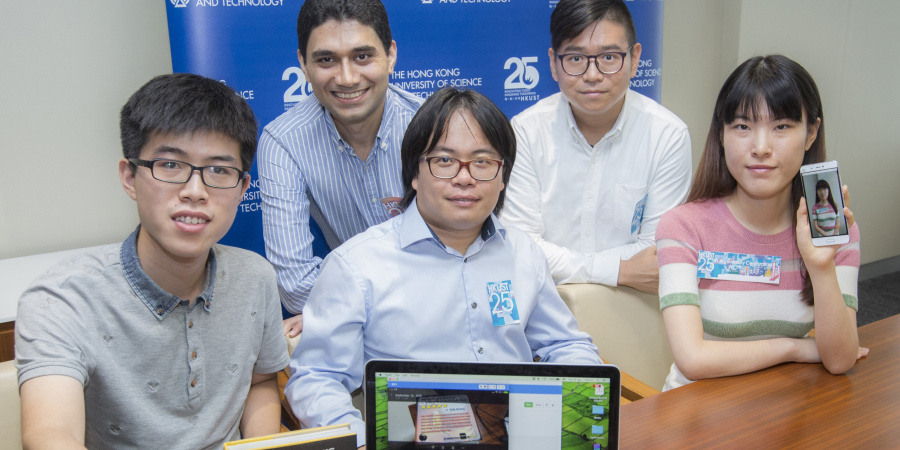HKUST Builds Frameworks to Boost Development of Mobile Applications on Augmented Reality
Augmented Reality (AR) is the next big thing for mobile devices. Researchers at The Hong Kong University of Science and Technology (HKUST) are on course of building a novel AR platform for mobile devices, in efforts to facilitate an ecosystem for entrepreneurs and programmers to develop AR programs and applications on mobile and wearable devices.
Prof Pan Hui, Director of HKUST-DT System and Media Lab (SyMLab), said the lab resolved to a bottom-up approach in its research to facilitate the development of AR applications on mobile and wearable devices. “We sought to identify and develop major AR components including hardware platforms, software frameworks and display devices, then we enable technologies such as object tracking and process offloading to significantly accelerate the development cycle,” he said.
Setting up in 2013, SyMLab is a joint laboratory generously funded by Deutsche Telekom (DT), a major telecom operator in Europe and the US, to conduct cutting-edge research in the area of mobile systems and media. The vision of the lab is to bring pioneering system and media research to Asia by providing an excellent academic research environment with strong ties to industries and to address real problems. HKUST is the first university in East Asia to establish a joint lab with DT.
SyMLab has been developing dozens of AR system components, it has filed 18 patents so far spanning across different AR sectors. Among the projects are CloudRidAR – a mobile cloud computing technology and the in-cloud big data processing algorithms which allows real-time performance of mobile AR apps by offloading intensive computational operations to the cloud and co-located devices. Users can thus access a plethora of relevant data, reviews or analysis when they point the mobile to an object – a book or a movie poster, without having to overwhelm the mobile devices. The project has received over HK$2 million funding from the Innovation and Technology Commission.
While AR enriches the real world with digital information and media, it also raised many privacy issues. To address the problem, researchers at SyMLab proposed a novel interactive and context-aware platform between mobile users and cameras, allowing users to use static tags and flexible hand gestures to blur their faces in the photographs.
The lab is also developing an integrated system called Ubii – which allow users to interact with several smart devices using simple hand gestures. This new human-computer paradigm allows files to be transferred easily among computers or sent to the printer remotely with a ‘dragging’ hand gesture. Other projects include a real-time emotion sensing system on mobile and wearable devices, and an AR social network which allows people to share messages with other users without having to go through the server.

